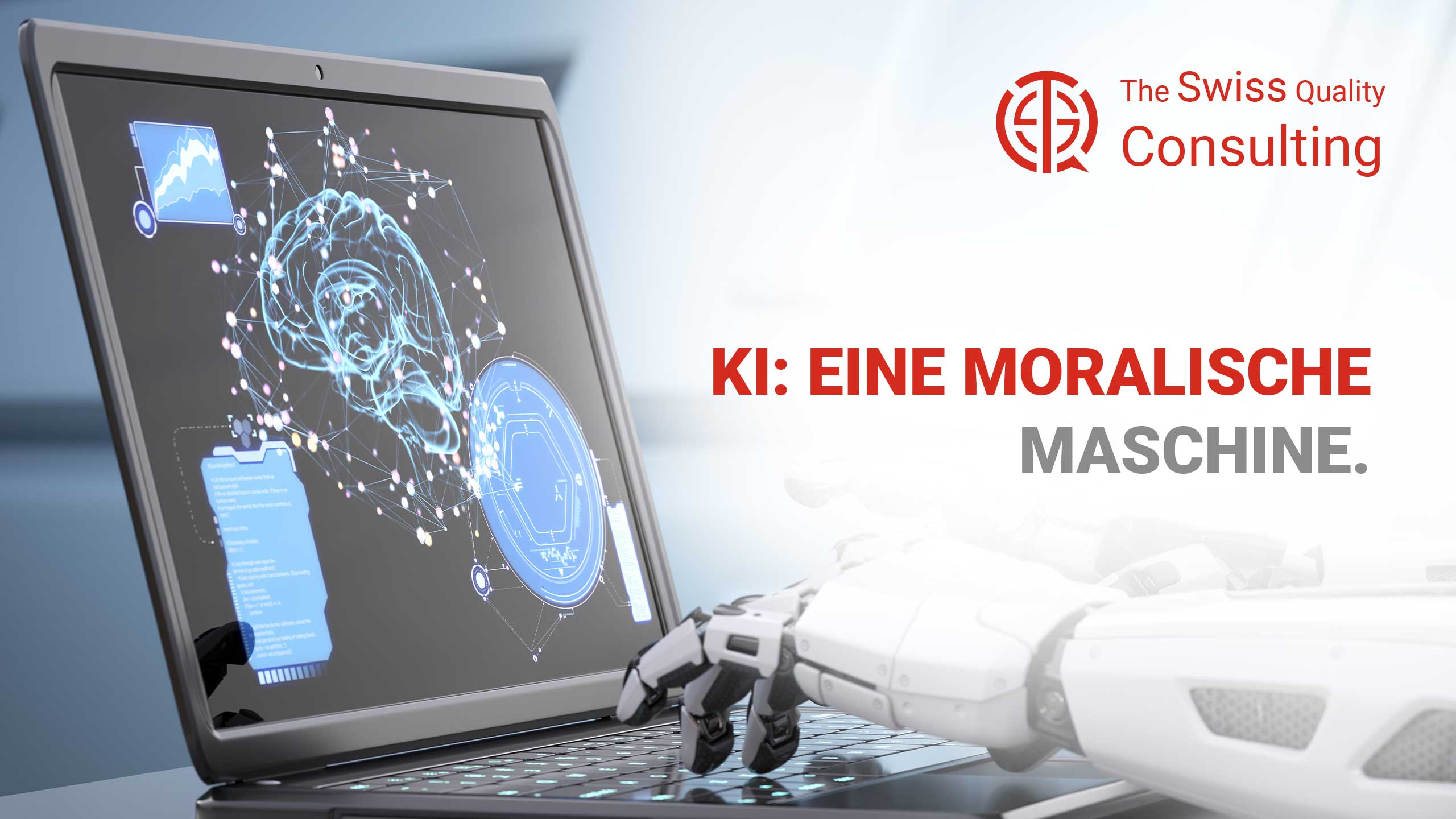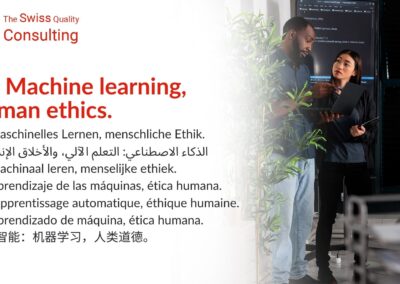The Role of Professional Organizations and Industry Standards in Saudi Arabia and UAE
Importance of Digital Ethics in Modern Technology
Promoting digital ethics through professional organizations and industry standards is crucial as technology continues to evolve and integrate into every aspect of business and society. In Saudi Arabia and the UAE, where rapid technological advancement is a cornerstone of national development strategies, the adherence to ethical standards is paramount. Digital ethics involves the responsible use of technology, ensuring privacy, security, fairness, and accountability in the development and deployment of technologies like Artificial Intelligence (AI), Blockchain, and the Metaverse.
The importance of digital ethics cannot be overstated. As AI and other advanced technologies become more pervasive, the potential for misuse and unintended consequences increases. Issues such as bias in AI algorithms, data privacy breaches, and the ethical implications of immersive technologies like the Metaverse are critical concerns. Professional organizations and industry standards play a vital role in addressing these challenges by establishing guidelines and best practices that promote ethical behavior among technology developers and practitioners.
Moreover, digital ethics is essential for maintaining public trust and ensuring the long-term success of technological innovations. In business environments where reputation and customer trust are critical, adhering to ethical standards can differentiate a company from its competitors. This is particularly relevant in dynamic markets like Riyadh and Dubai, where businesses strive to balance innovation with responsible practices.
Role of Professional Organizations in Promoting Digital Ethics
Professional organizations are instrumental in promoting digital ethics among technology developers and practitioners. These organizations, such as the IEEE (Institute of Electrical and Electronics Engineers) and ACM (Association for Computing Machinery), provide a platform for professionals to collaborate, share knowledge, and develop ethical guidelines. In Saudi Arabia and the UAE, local chapters and associations play a similar role, fostering a culture of ethical awareness and accountability.
One of the key contributions of professional organizations is the development of ethical codes of conduct. These codes provide clear guidelines on acceptable behavior and practices in the development and use of technology. For instance, the IEEE’s Code of Ethics outlines principles related to honesty, integrity, and fairness, which are essential for guiding the actions of technology professionals. By adhering to these codes, professionals can ensure that their work aligns with ethical standards and societal expectations.
Furthermore, professional organizations offer training and certification programs that emphasize the importance of digital ethics. These programs equip technology developers with the knowledge and skills needed to navigate ethical dilemmas and make informed decisions. In regions like Riyadh and Dubai, where continuous professional development is encouraged, such training programs are invaluable for maintaining high standards of ethical conduct in the technology sector.
Establishing Industry Standards for Ethical Technology Use
Industry standards are another crucial component in promoting digital ethics. These standards, developed by organizations such as ISO (International Organization for Standardization) and IEC (International Electrotechnical Commission), provide a framework for the ethical development and deployment of technology. In the context of Saudi Arabia and the UAE, adherence to these standards ensures that technological innovations align with global best practices and local regulatory requirements.
One example of industry standards promoting digital ethics is the ISO/IEC 27001 standard for information security management. This standard outlines requirements for establishing, implementing, and maintaining an information security management system (ISMS). By complying with ISO/IEC 27001, organizations can ensure that their data management practices are secure, transparent, and aligned with ethical principles. This is particularly important in the Middle East, where data privacy and security are critical concerns.
Additionally, industry standards can drive innovation by providing a clear roadmap for ethical technology development. Standards related to AI, for example, can guide the creation of fair and unbiased algorithms, enhancing the reliability and trustworthiness of AI applications. In markets like Riyadh and Dubai, where AI is a key driver of economic growth, adherence to these standards can ensure that AI technologies are developed responsibly and ethically.
Leadership and Project Management in Digital Ethics
Fostering Ethical Leadership in Technology Development
Effective leadership is essential for promoting digital ethics within organizations. Leaders in Saudi Arabia and the UAE must prioritize ethical considerations in their strategic decisions and foster a culture of integrity and accountability. Executive coaching services can play a significant role in developing ethical leadership by providing leaders with the tools and insights needed to navigate ethical challenges and promote responsible technology use.
Ethical leadership involves setting clear expectations for ethical behavior and holding team members accountable. Leaders must communicate the importance of digital ethics and ensure that it is integrated into all aspects of technology development and deployment. By leading by example, they can inspire their teams to uphold high ethical standards and contribute to a culture of trust and responsibility.
Moreover, ethical leadership requires continuous learning and adaptation. As technology evolves, so do the ethical challenges associated with it. Leaders must stay informed about the latest developments in digital ethics and be prepared to address emerging issues. Executive coaching can support this ongoing development by providing leaders with the knowledge and skills needed to stay ahead of ethical challenges and drive positive change.
Implementing Ethical Project Management Practices
Project management practices play a critical role in ensuring that ethical considerations are integrated into technology development projects. In Saudi Arabia and the UAE, where large-scale technology projects are common, ethical project management is essential for delivering successful outcomes. This involves incorporating ethical guidelines into project planning, execution, and evaluation, ensuring that all stakeholders are aligned with ethical standards.
One effective approach to ethical project management is the use of frameworks such as PRINCE2 (Projects IN Controlled Environments) and PMBOK (Project Management Body of Knowledge). These frameworks provide structured methodologies for managing projects, including guidelines for ethical decision-making. By applying these methodologies, project managers can ensure that ethical considerations are addressed at every stage of the project lifecycle.
Additionally, ethical project management requires active stakeholder engagement. Project managers must collaborate with stakeholders to understand their ethical concerns and ensure that their perspectives are considered in project decisions. This collaborative approach not only enhances the ethical integrity of the project but also builds trust and support among stakeholders, contributing to the overall success of the project.
Conclusion: Building a Foundation for Ethical Technology Development
Promoting digital ethics through professional organizations and industry standards is essential for the responsible development and use of technology. In Saudi Arabia and the UAE, where technological innovation is a key driver of economic growth, adherence to ethical standards ensures that technology benefits society while minimizing risks. Professional organizations and industry standards provide the framework for ethical behavior, while effective leadership and project management practices ensure that these standards are implemented effectively.
As technology continues to evolve, the importance of digital ethics will only increase. By fostering a culture of ethical awareness and accountability, businesses can navigate the complexities of modern technology and achieve sustainable success. Ultimately, the goal is to create a technological landscape that is not only innovative but also ethical, responsible, and aligned with the values of society.
#DigitalEthics #ProfessionalOrganizations #IndustryStandards #SaudiArabia #UAE #Riyadh #Dubai #ArtificialIntelligence #GenerativeAI #ExecutiveCoaching #Blockchain #Metaverse #BusinessSuccess #Leadership #ProjectManagement































